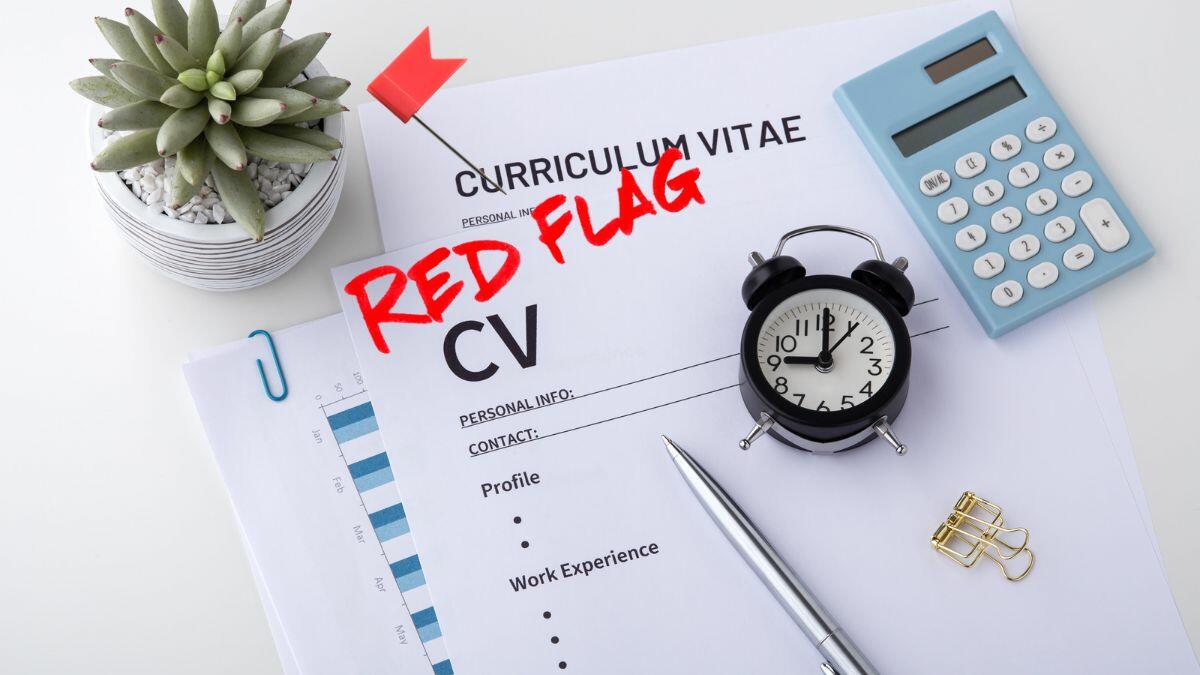Signs to pay attention to in your CV
Not following instructions
One of the biggest “red flags” I pay attention to in CV applications is whether they followed instructions correctly or not. In the recruitment role, we always have specific, clear processes to ensure everything is done as smoothly and conveniently as possible, such as how candidates need to structure their CV, what details to include. in, what format should the CV be in and how to send the CV via email. This information is always presented prominently in job postings.
Yet many times I receive CVs that are incorrectly formatted, lack information, or CVs sent via Messenger for faster review instead of via email as requested... I see this as a bad warning sign about the candidate because it shows a lack of effort and attention to detail. Candidates who don't follow directions may be used to getting their own way. It is very likely that they will have difficulty following instructions if hired. Furthermore, they show a desire to be treated as exceptions, rather than following the rules that everyone else must follow.
That's why I will prioritize considering candidates whose CVs are made according to the instructions, fully meet the requirements because they are willing to put in the effort and are more likely to comply with the rules and perform. take your work seriously.
Lack of career advancement
Be wary of candidates who have spent many years in a similar position or whose career has declined over time. This implies that they lack the motivation to advance and take their career to the next level or are not qualified for a higher role in the profession.

Even if those candidates aren't interested in a more senior role, they should show some progress in their career. They should at least show they have taken on additional tasks or developed new skills. The company probably wants employees who feel motivated to work hard and achieve great goals, and someone who has held the same role for many years will not be the best choice.
I once received a question: Maybe a candidate who changes jobs and holds the title of team leader at the new company has responsibilities equivalent to the department manager, which was their position in the old environment. Or the supervisor accepts the role of employee because management was eliminated during a restructuring. Or the candidate was laid off and chose a job with less responsibility instead of receiving unemployment benefits. If that's the case, saying that they're going backwards in their career doesn't seem right? How to evaluate these cases?
In these situations, I believe that smart candidates will know how to explain in their cover letter without making us wonder.
Only mention tasks without mentioning achievements
When a CV is like a job summary, we cannot know anything about the candidate's effectiveness. It shows that the candidate holds a certain job, with certain responsibilities, but it doesn't demonstrate any evidence that they actually did a good job. Perhaps this candidate had a great responsibility but failed spectacularly.
Responsibilities and duties are an important part of a candidate's previous job description, but they are almost meaningless if they are not accompanied by the results achieved from these actions. An impressive CV will show evidence of achievements, facts and figures. For example, if a candidate has managed a team, they need to clearly state how many people there are in that team, how the members performed, whether they met deadlines, whether they saved the business money, and whether they saved money. how much…?
If the candidate does not include those achievements in their CV, then even if they were given gold, I would not dare to forward those job applications to the boss.
The candidate is more than qualified for the job
There are two sides to a story and two sides to a coin. This is also true when recruiting candidates whose qualifications are too high for the position's requirements. They can bring more expertise and new ideas, be more independent, can take responsibility for their own work, and manage their time to help bring about higher productivity. But along with that, they will soon feel bored and leave as soon as they find a better opportunity.

If you decide to bring a candidate into the next round, you should consider whether the value they bring to the business in that short time can compensate for the cost of recruiting them and the cost of the entire process. Looking for another employee to replace or not?
The information in the CV is inconsistent compared to other sources
CVs are no longer the only reference source to learn about a candidate's work history. Social media, and more specifically platforms like LinkedIn and Facebook, are popular places to stay informed about where candidates have worked. As a general rule, I will cross-reference information on the CV with the candidate's social media to ensure that dates, job descriptions and other important details all match.
Thanks to that, I discovered that the candidate worked full time at two different companies at the same time, and the job title was not the same as described in the CV. These differences may suggest that the candidate is trying to hide information or simply made a mistake. This issue will be resolved immediately with a quick call or we can ask about it during the interview and make an assessment based on the explanation received.
If you spot any of the above "red flags" in your CV, probe further. This could be using personality tests that help identify strengths, weaknesses, values and perspectives, or conducting highly structured interviews. Combining these methods with a thorough CV check will help you get a clearer idea of a candidate's abilities to take on a certain role.












Replies to This Discussion